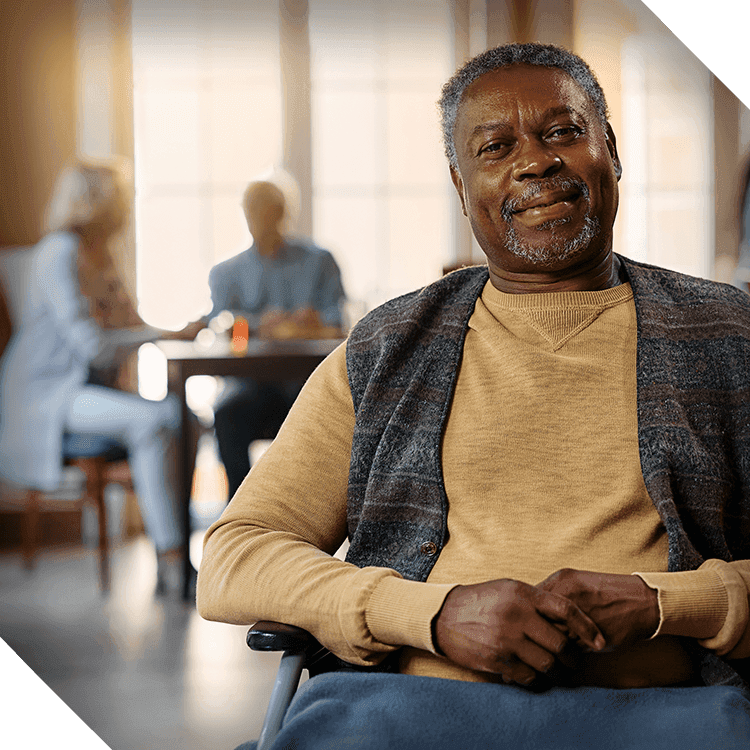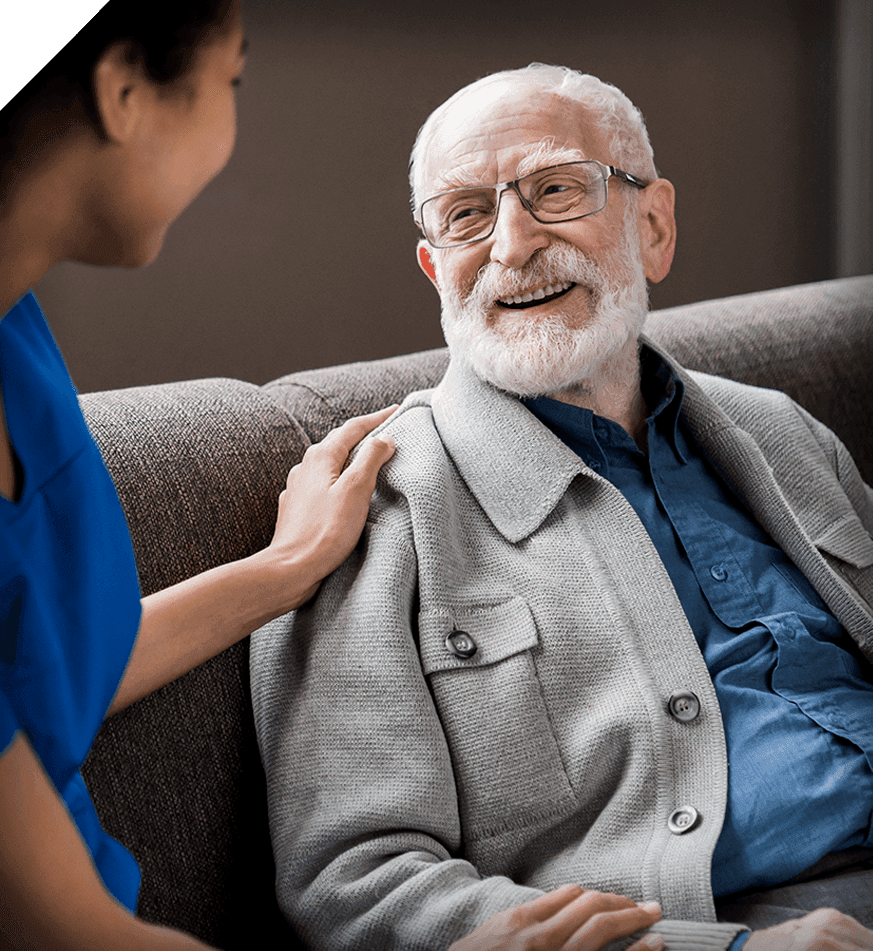
San Diego Senior Abuse Law Firm
Dedicated to Protecting Our Elders in Los Angeles & Southern California
At Bryant Dieringer & Wilson, LLP, our elder litigation team handles a wide variety of abuse issues pertaining to our most vulnerable citizens. Whether in assisted living facilities, nursing homes, elder daycare centers, or being cared for by at-home caretakers, the elderly are at risk of being abused and taken advantage of in various ways. These types of abuse can be due to neglect, carelessness, or malicious intent on the part of those whose role is to care for and protect them. Whatever the circumstances, the elderly and their families deserve justice when mistreatment, injury, wrongful death, financial exploitation, or other types of fraud are used against them by those in a position of trust or authority.
At Bryant Dieringer & Wilson, LLP, we bring more than 30 years of experience to stand up for the rights and best interests of elders in all types of abuse and negligence matters. Our elder litigation team handles cases in both civil and probate courts. Due to our longstanding years in practice handling diverse elder abuse issues, our team is comfortable addressing them in both courts, unlike many of our competitors. Our elder abuse lawyers in San Diego know how to tackle cases from all angles in righting the wrongs suffered by the elderly who often cannot adequately speak for themselves, suffer from fear or retaliation if communicating the harm they have endured, and whose bodies and minds are often frail and compromised, making it a hardship for them to defend themselves.
Get in touch with our senior abuse law firm in San Diego by dialing (619) 693-4900 or messaging us online.


In Their Own Words
-
"Mr. Bryant and his staff were always available to answer our questions and concerns."Eugenia A.
-
"Joel used creativity and attention to details of complex corporate matters to move the case to settlement within six months of filing."Robert H.
-
"They were very professional, honest, compassionate, and supportive."Brent R.
Types of Elder Abuse Cases We Handle
At Bryant Dieringer & Wilson, LLP, we handle all matters that comprise any type of elder abuse, such as the following:
- Falls
- Bed Sores/Pressure Ulcers
- Nursing Home Abuse
- Nursing Home Injuries
- Sexual Abuse
- Life Insurance Fraud and Scams
- Malnutrition
- Physical Abuse
- Adult Residential Care Facilities Abuse
- Long-Term Care Insurance Denial
- Financial Abuse, such as Annuity Fraud, Trust Fraud, and other forms of financial exploitation
Our firm can develop cases on behalf of elders and their families, whether they deal with physical, mental, or financial harm. Our substantial understanding of all types of elder abuse includes experience ranging from medical issues to mental health matters, contract law, real property law, and probate law. This comprehensive knowledge has led to excellent results for our clients in cases ranging from simple to complex and multi-faceted matters dealing with both small and large institutions working in the elder care industry.
No matter what type of issue your case involves, we strongly urge you to take advantage of our free consultation to discuss it privately with one of our competent and compassionate elder abuse lawyers in San Diego. Find out how we can apply our knowledge and skills to seek the justice your elderly family member deserves.
Need help with an elder abuse matter in Southern California? Contact Bryant Dieringer & Wilson, LLP online or at (619) 693-4900 to speak with an elder abuse attorney in San Diego about your case in a complimentary and confidential consultation.
Local Resources for Protecting Seniors in San Diego
Living in San Diego, we understand the unique challenges our senior community faces. With a significant elderly population, it's crucial to be aware of the resources available to protect our loved ones from abuse. The San Diego County Adult Protective Services (APS) is a vital resource for reporting and addressing elder abuse. They work diligently to investigate reports and provide necessary interventions to ensure the safety and well-being of our seniors.
In addition to APS, the San Diego Police Department's Elder Abuse Unit is another critical entity dedicated to protecting our elderly residents. They collaborate with various local agencies to investigate and prosecute cases of elder abuse, ensuring that justice is served.
Understanding Challenges Clients Face
One of the most pressing issues in San Diego is the prevalence of financial exploitation among seniors. With many retirees choosing to settle in our beautiful city, they often become targets for financial scams and fraud. At Bryant Dieringer & Wilson, LLP, we are acutely aware of these local pain points and are committed to fighting for the rights of our elderly clients. Our deep understanding of the local landscape allows us to navigate these cases effectively, ensuring that our clients receive the justice they deserve.
We also recognize the emotional and physical toll that elder abuse can take on families. San Diego's close-knit communities mean that when one of our seniors is harmed, it affects us all. Our team can provide compassionate support and legal guidance, helping families through these difficult times. Whether you're in La Jolla, Chula Vista, or anywhere in between, you can trust us to stand by your side and advocate for your loved ones.
Why Choose Bryant Dieringer & Wilson, LLP for Elder Abuse Cases in Southern California?
We act as full-service advocates for our clients in fighting for the justice that they deserve in all types of elder abuse and neglect. Our firm is distinguished by our extensive experience and dedicated elder litigation team that is adept at handling cases in both civil and probate courts. Our deep understanding of the complexities of elder abuse law and commitment to justice for the elderly makes us a strong ally for victims and their families.
Furthermore, Attorney Bryant Dieringer & Wilson, LLP has been recognized as one of the area’s top litigation attorneys in the field of California elder abuse. He was one of the first to focus on prosecuting offenders in both civil and probate courts in matters of financial elder abuse.
Our elder litigation team also includes Attorney Rob Dieringer who is a Certified Specialist by the California Bar in both estate planning, trust, and probate law as well as elder law. These and the rest of our elder litigation team attorneys work together synergistically to seek proven successful results for our clients throughout San Diego, Los Angeles and Southern California.
Frequently Asked Questions About Elder Abuse
What should I do if I suspect an elder is being abused in a nursing home?
If you suspect an elder is being abused in a nursing home in Southern California, it is important to take immediate action. Document any signs of abuse, report your concerns to the facility's management, and contact authorities if necessary. Additionally, seeking legal counsel from a firm like Bryant Dieringer & Wilson, LLP can provide guidance on how to protect the elder's rights and pursue legal action if appropriate.
How Can Families Keep Their Loved Ones Safe in Nursing Homes?
Ensuring loved ones' safety in nursing homes in San Diego is a substantial concern for families, requiring vigilance and commitment. Selecting a reputable facility that aligns with state regulations and offers quality care is paramount. Families should visit facilities regularly, engage with staff to understand care protocols, and remain observant of any signs of neglect or mistreatment. Additionally, establishing a dialogue with nursing home management about their care policies can provide reassurance about resident safety measures. By staying informed and proactive, families can make sure that their loved ones receive the dignified and compassionate care they deserve.

Our Elder Litigation Team is dedicated to fighting for the elders' rights; we're committed to helping your family move forward. Call us today at (619) 597-2577 to get started.











